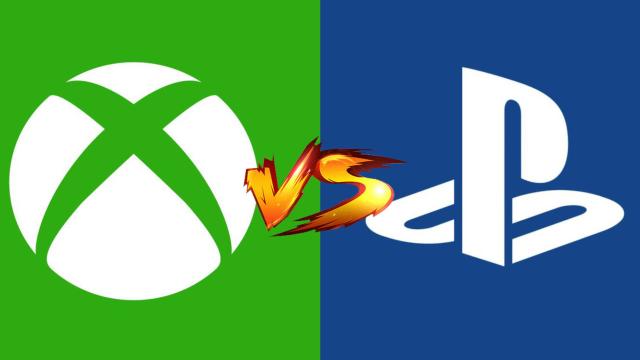Xbox has endured a bruising fight in front of UK regulators as it attempts to sell its Activision Blizzard mega merger, with main rival PlayStation taking every opportunity to stick the boot in. There’s a lot to go through from the court documents that found their way online last night, so perhaps its best to start with the least bit of interesting information gleaned: next-gen consoles are still a way off because the current “next-generation” hardware hasn’t really gotten started yet.
Thanks to the COVID-19 pandemic and the various shortages and production delays associated with it, it feels like the era of the PlayStation 5 and the Xbox Series X is still warming up. However, the Christmas period now approaching at Mach speed will be the third for both consoles. By this point in the life cycle, we’d usually be getting close to revised models, the first “slim” variants, if you like, the ones that update the hardware a little and come in about a hundred bucks cheaper. With people still battling to get hold of a PlayStation 5, that era might have to wait a little while longer.
That, of course, is to say nothing of future hardware generations.
Though the bulk of last night’s regulatory documents relate to Microsoft’s giant Activision Blizzard merger, one detail that leapt out was the broad admission from both Sony and Microsoft that neither expects to have next-generation PlayStation or Xbox consoles on the market before 2027 at the very earliest.
As reported by VGC, this all came up because of the CMA’s concerns that the size of Microsoft’s merger could have an impact on Sony’s ability to compete, with specific relevance to — you guessed it — Call of Duty. Microsoft responded by explaining its view that next-generation consoles are still half a decade away.
“The Parties (meaning Microsoft and Activision) do not dispute that some portion of gamers are likely to re-assess their console ownership at the start of a new generation,” reads Microsoft’s rebuttal wrote. “But they also note that this is an event that only occurs approximately every eight years.
“Indeed the next new generation of consoles are not expected to be released before the fall of 2028 at the very earliest.”
So file that one away. Interesting tidbit, and perhaps predictable for anyone keeping score, but it was quickly swept away in the wave of courtroom battery that followed. Sony has discovered that it can hit Microsoft with the Call of Duty stick any time it wants, and regulators take notice it they does.
Sony continues to argue that the threat of losing Call of Duty to Microsoft under the bounds of exclusivity presents a real and grave danger. Microsoft continues to argue that its position that making CoD a platform exclusive would not be in any way beneficial to its bottom line, that the franchise is not historically a system-seller, and that it offered Sony a ten-year deal to keep the franchise on PlayStation platforms.
Sony isn’t having a bar of it.
“Microsoft has offered to continue making Activision’s games available on PlayStation only until 2027,” said Sony. “By the time SIE launched the next generation of its PlayStation console (which is likely to occur around [this bit is redacted]), it would have lost access to Call of Duty and other Activision titles, making it extremely vulnerable to consumer switching and subsequent degradation in its competitiveness.
“Even assuming that SIE had the ability and resources to develop a similarly successful franchise to Call of Duty, it would take many, many years and billions of dollars to create a challenger to Call of Duty – and the example of EA’s Battlefield shows that any such efforts would more than likely be unsuccessful.”
It then turned up the heat, claiming its view that the real strategy driving the acquisition was to turn PlayStation into another Nintendo, a hardware maker removed from the R18+ competitive shooter space. Microsoft would, Sony argues, effectively own the competitive shooter space on consoles and could potentially throw its weight around in a way that creates headaches for the competition.
It rounded out its arguments with a warning that Microsoft could use Call of Duty exclusivity to drive up the prices on its hardware and subscription services. Again, Microsoft insists that this wouldn’t be the case as it doesn’t consider CoD to be a system seller. In Microsoft’s view, Call of Duty players have little platform loyalty and will buy the game on whatever system is most convenient. Its interest in exclusives, it says, is tied to what it views as more valuable single-player franchises like The Elder Scrolls. Microsoft’s arguemnts assert it sees these games having a far greater power to move console hardware than any Call of Duty title.
And then, if you can believe it, Microsoft’s day got even worse. Politico reports that the US’ Federal Trade Commission may be preparing an antitrust lawsuit in order to block the merger. Its grounds? You guessed it: deal too big, could hurt the competition.
From the off, there’s been an expectation that Microsoft might not be able to absorb a company the size of Activision Blizzard without taking a few hits. The idea that it might have to break up or sell off parts of the Activision Blizzard business to get the deal over the line have come up before. As its battles with regulators around the world continue to pile up, it seems like that scenario is becoming more and more likely.

Leave a Reply